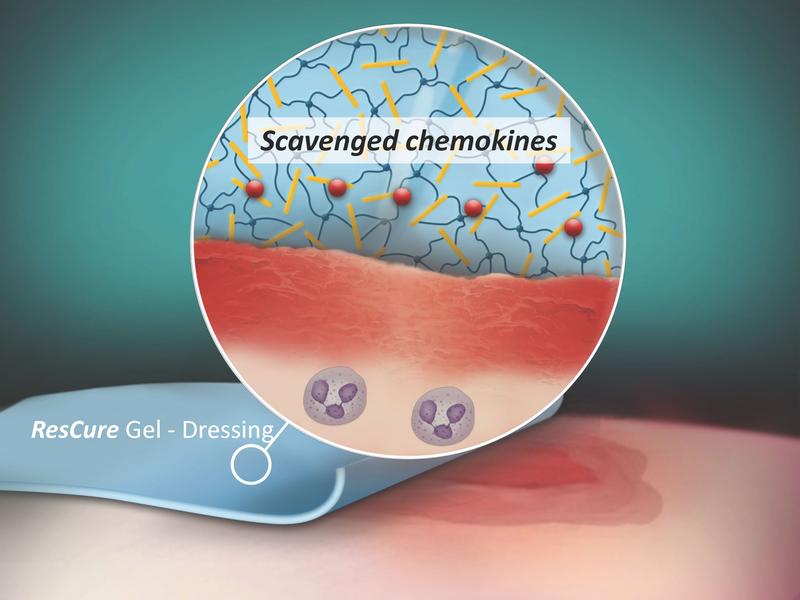

Schematic representation of the effect of ResCure hydrogel wound dressings
Zoltán Tanczik/VOR und Leibniz IPF Dresden
Dr. Passant Atallah, Dr. Lucas Schirmer, Dr. Uwe Freudenberg and Prof. Dr. Carsten Werner from the Leibniz Institute of Polymer Research Dresden e.V. (IPF) received the award “Best Development in the Field of Polymers for the Health Sector – Largest Innovation Potential” of the ProMatLeben initiative of the Federal Ministry of Education and Research (BMBF) for the development of novel hydrogel wound dressings to treat chronic skin wounds.
In Germany alone, there are currently more than 900,000 patients with chronic wound healing disorders who often also suffer from diabetes or cardiovascular diseases.
In cooperation with partners in the DFG Collaborative Research Centre Transregio 67 (Dr. Sandra Franz and Prof. Jan-Christoph Simon, University of Leipzig), the research team was able to develop polymer networks from derivatives of the glycosaminoglycan heparin and branched poly(ethylene glycol), which can absorb inflammation-promoting signal molecules from the wound like a “molecular sponge”.
The design of the polymer networks advantageously allows for retaining signal molecules that promote wound healing. Since the hydrogel wound dressing does not release bioactive substances, the new technology is expected to become quickly approved and translated into clinical application.
For this purpose, a hydrogel-coated textile wound contact dressing has now been developed and successfully tested in a large animal model. The team of prizewinners is currently preparing the spin-off of a company.
The IPF is one of the largest polymer research institutions in Germany and, as an institute of the Leibniz Association, committed to application-oriented basic research. The IPF's research program includes the exploration of new concepts for materials inspired by biology.
Prof. Dr. Carsten Werner, werner@ipfdd.de, +49 351 4658531
http://www.ipfdd.de/ibp
https://idw-online.de/de/news713727












